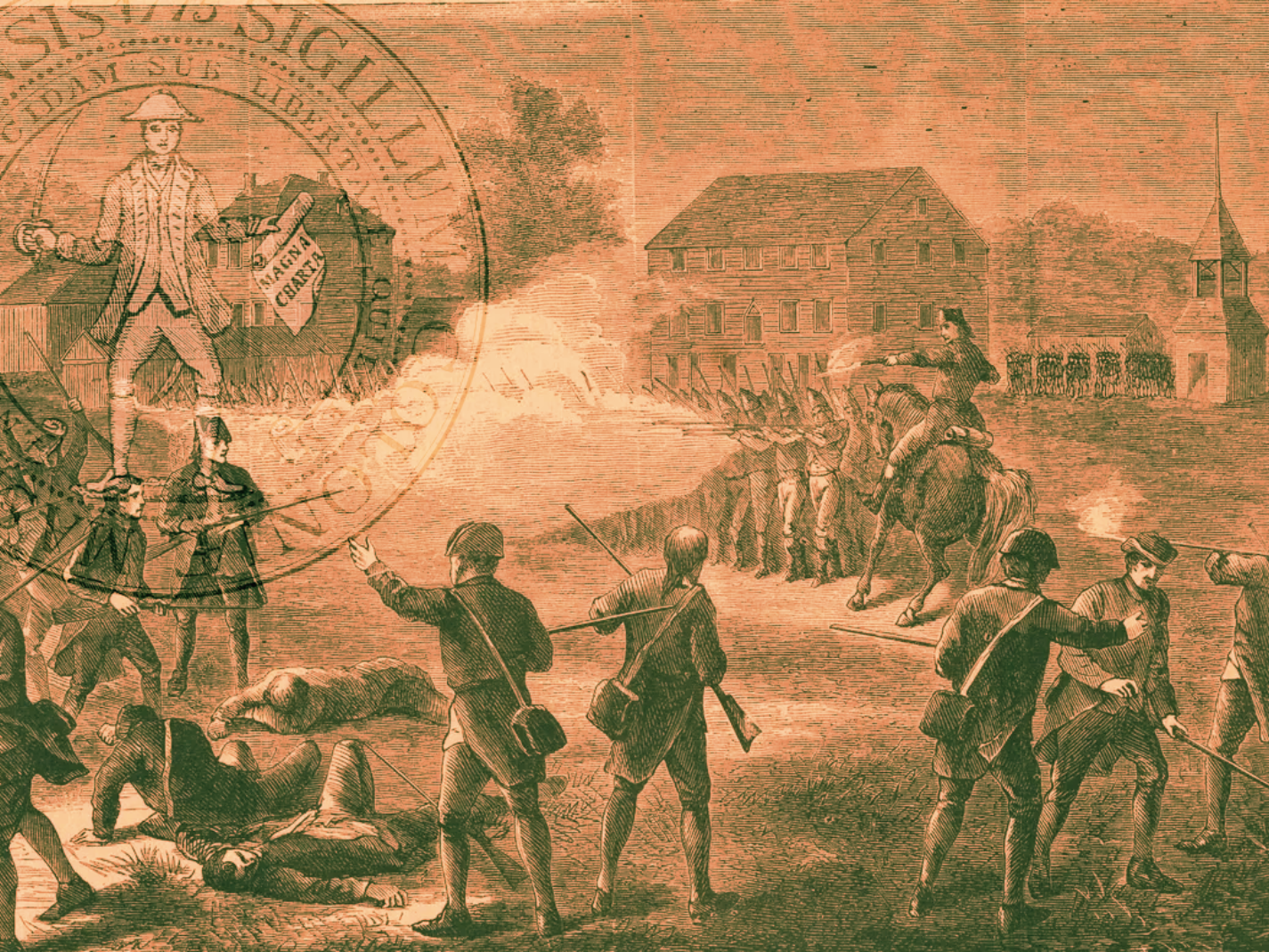
America survived those crucial months because we had self-government as well as liberty.
The Second Massachusetts Provincial Congress assembled on February 1, 1775.
The Second Congress would select Samuel Adams, John Adams, John Hancock, Thomas Cushing, and Robert Treat Paine to serve as delegates to the Continental Congress. It authorized a Committee of Safety—among other duties—to raise and order Massachusetts’ new armed forces. The Second Massachusetts Provincial Congress would govern Massachusetts as Parliament declared Massachusetts in rebellion and when British troops marched to Lexington and Concord. Indeed, the Congress had sat at Concord and departed to safer Watertown due to those battles. The Massachusetts men who fired the shot heard round the world had been authorized and organized by the Second Massachusetts Provincial Congress.
America survived those crucial months because we had self-government as well as liberty.
[RELATED: The Jewish Patriot Who Paid Liberty’s Price]
Scattered individuals would scarcely have had the heart to continue resistance once Great Britain’s king and parliament had declared them rebels. Even a mob of Boston wharf rats whipped up by Sam Adams would have had trouble facing redcoats. Massachusetts had the representatives of towns writing journals and working in committees to do all the work of keeping up the struggle. The men of Lexington and Concord—how could they have coordinated to fight the British, how could they have had powder and shot for their guns, if the Second Provincial Congress had not preparing the ground for months? The Second Provincial Congress kept Massachusetts at a fighting pitch—not least by declaring days of Thanksgiving in prayerful reverence to God. They sent an official letter with their account of Lexington and Concord ASAP to Ben Franklin in London to pass on their side of the story. They sent their best, above all John Adams, to talk the representatives of the other colonies into support, into union, into that sympathy and commitment that would transform a Massachusetts rebellion into an American revolution.
Several dozen Massachusetts representatives sat down, day after day, voted, scribbled, debated, and sent out orders, cognizant that they represented the people of Massachusetts’ town. What they did, they did in their name—and with the realism bred of 150 years of self-government.
Most rebellions fail—the state’s sinews of power rarely buckle, even in crisis. Massachusetts was governed in rebellion, and it did not fall apart. The Minutemen fought and won at Lexington and Concord—and the militia was still there to fight another day. The voters of Massachusetts’ towns chose well when they voted in these Congressmen.
But perhaps it mattered as much that this was the Second Massachusetts Provincial Congress.
Rebellion became routine by repetition; the shock of government without royal sanction faded and became old hat. (So, too, a second Trump administration: it gains power and authority by proving the first administration was no fluke.) Had Parliament declared Massachusetts in rebellion? Why, yes. And? Was this news to the good folks of Massachusetts who had voted in a second rebel Congress? Massachusetts, by the matter-of-fact continuance of its rebellion, did that bit more to turn British colonies into the United States of America.
[RELATED: The Shot Not Heard Round the World]
When we work to restore American liberty, we too must marry liberty with self-government, the bold act with the quiet legislative and administrative work that makes liberty endure. And we must repeat our defiance until they can no longer be called exceptions but the standard behavior of the rejuvenated republic. We must make liberty customary.
The Second Massachusetts Provincial Congress provides a model for how that should be done.
Follow David Randall on X
Art by Beck & Stone
“The Minutemen fought and won at Lexington and Concord”
I disagree — they lost at Lexington and Concord — but won in Arlington (then called Menotomy). The British mission was accomplished, they found the three cannons stored at Concord and destroyed them. But it was on the way back to Boston that the fighting became more intense, with the siege of Boston beginning that night.
To understand the latter, it is important to remember that this was back when Boston was still essentially an island with only the narrow “Boston Neck” connecting on the South — see: https://en.wikipedia.org/wiki/Paul_Revere%27s_midnight_ride#/media/File:Concord_Expedition_and_Patriot_Messengers-en.svg
Second, Watertown is closer to Boston and on a good road — US Route 20 today, it was the Boston Post Road at the time and an Indian trail before that. (Lexington is on what is MA Route 2A today — both roads originate at the same point in Boston.) Watertown may have been politically safer, I don’t know about the relative conditions of the roads in 1775, and it may have just been a different venue that the British didn’t know about — or a political attempt to gain the support of people in that region — I don’t know.
But I don’t see how Watertown was inherently “safer” and my guess is that it just “wasn’t Concord.”
Third, the militia had existed since 1620 — people forget that the Indians helped the Pilgrims that first year because they sought a military alliance against the Narragansetts. The guns and powder were not obtained in preparation of Revolution — if anything, it was left over from service in the British Army in the earlier French & Indian War. Men were required to drill and towns required to supply ordinance, and that went way back to at least King Phillip’s War (1675-76).
Fourth, the British had created a leadership vacuum, what is amazing about the proceedings of this extra-legal legislature is how much of it was basic “Civics 101” stuff, e.g. chartering new towns. And I don’t know if it was true “self” government or *a* government that was more important.